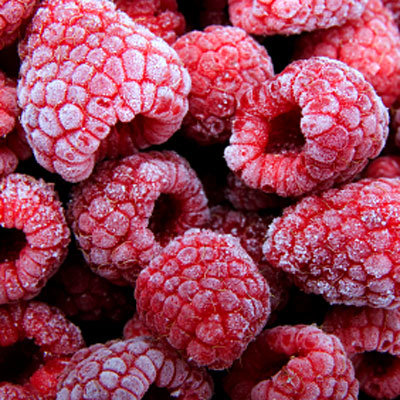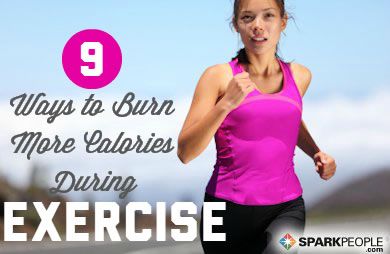The Surprising Truth About 4 Diet Maxims
View as one page

Never eat after 8 p.m.
Verdict: Myth. The old rule said that if you eat and then go right to sleep, your body won't burn those calories and instead will store them as fat. But that's not exactly true. Florida State University research found that adults who ate a small snack—totaling about 150 calories—before they went to bed showed no major difference in metabolic rate compared with those who didn't nosh. "Calories can't tell time," says Marlene Koch, RDN, author of Eat What You Love Everyday. "It's what you eat and how much, not when, that determines whether you gain or lose weight." That may be another reason we link pre-bedtime snacking with packing on pounds: When you're tired after a long day at work and with the kids, you're more likely to gorge on comfort foods high in carbohydrates, sugar and fat.
View as one page
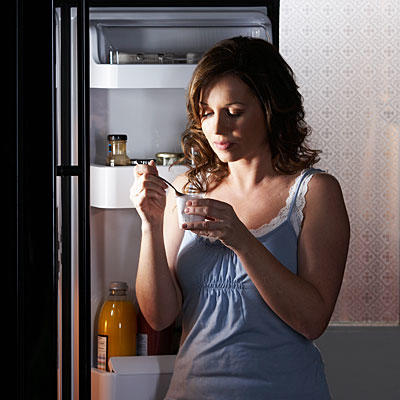
Snack smart at night
Abide by the old adage to eat like a king in the morning, a prince at noon and a pauper at night—and if you do snack after dark, just be careful what you reach for. "Use it as an opportunity to add nutrients you missed during the day," Koch advises. "With things like cottage cheese, yogurt, unbuttered popcorn and nuts, you get calcium, fiber and antioxidants."
View as one page
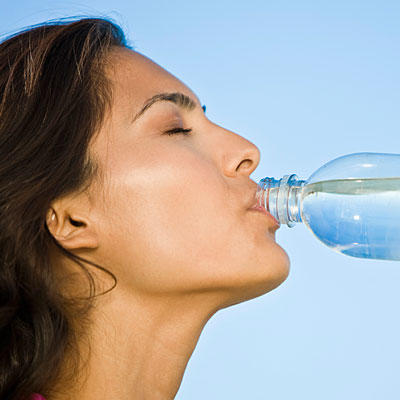
Down water to quell your appetite
Verdict: Truth. You can tap H2O to stay slim: Thirst often masks itself as hunger, so drinking a glass of water when you're "hangry" can make you feel less famished. Studies also suggest that having a glass or two just before a meal helps prevent overeating, says Elisa Zied, RD. Even better, she says, is to get fluids via fruits, vegetables, cooked grains and soups. In fact, water-rich foods like these can lead you to eat less. One Pennsylvania State University study found that eating a broth-based soup before lunch reduced total caloric intake for the meal by about 20 percent. "And there is some evidence that drinking water can be good directly for your waistline," Zied adds. "It helps reduce fluid retention and bloat."
View as one page
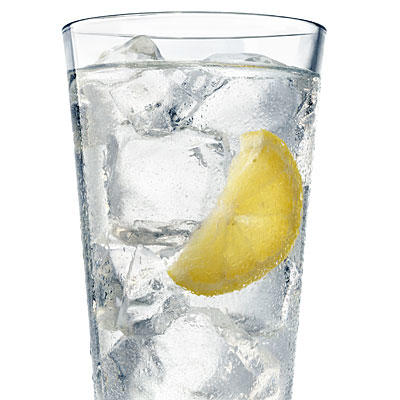
What water won't do
One thing water won't do, however, is somehow "flush" fat from your body. Also basically bunk: the notion that ice-cold water boosts metabolism (because, the theory goes, your body has to work to warm the water you've ingested). You'll burn a few extra calories but not enough to make any significant difference in your body composition.
View as one page
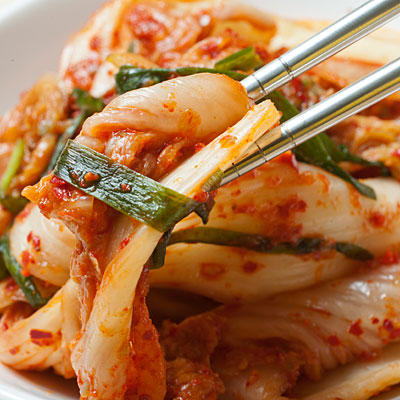
Pop probiotics to lose weight
Verdict: Truth. Probiotics is a big buzzword in the diet sphere nowadays. These healthy bacteria—which occur naturally in fermented foods like sauerkraut and kimchi as well as some cultured dairy products, and are also sold as supplements—help balance out the bad microbes in our gut that can cause diarrhea and other intestinal illnesses, like irritable bowel syndrome. Now recent research confirms that good bacteria can also help you maintain a healthy weight. A study from the Université Laval in Quebec revealed that women who took a probiotic supplement daily while restricting their calories lost 5 more pounds over 12 weeks than women who didn't take the supplement.
View as one page
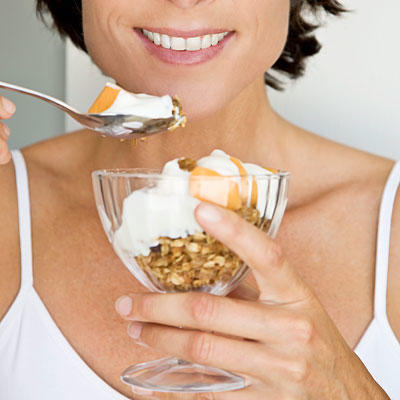
How to get probiotics
According to study author Marina Sanchez, "probiotics can make the intestinal walls less permeable to a lot of bad molecules, like inflammatory cytokines"—chemicals that may eventually lead to glucose intolerance, diabetes and obesity. A different Canadian study showed that probiotics may also have a positive effect on those who are only slightly overweight, too: After a month and a half, people who took a daily probiotic supplement lost up to 4 percent of their body fat—most of it from their bellies. The takeaway: Probiotics are a weight-loss aid worth trying. Pop a supplement or eat yogurt with live and active cultures (such as Lactobacillus rhamnosus, the strain used in the Université Laval study) every day to get benefits.
View as one page
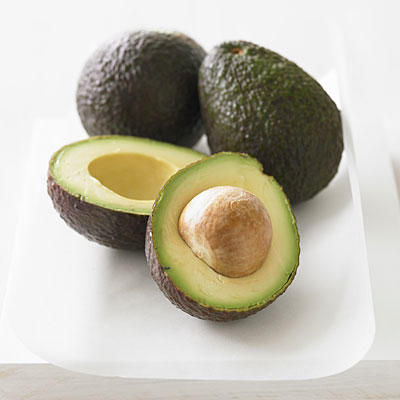
Good fats are free of calories, and extra-filling
Verdict: Myth. Do you find yourself adding avocado slices to every sandwich and salad you make? Are you always reaching for that big tub of almonds in your desk drawer? Foods high in monounsaturated fat—such as avocados, olive oil and nuts—are good for you, but all fatty foods, even these nutritional superstars, contain a lot of calories. "When it comes to weight loss, cutting calories is king," Koch explains. "There is nothing more calorically dense than pure fat, and even healthy foods like olive oil and avocados are packed with pure fat." So-called good fats hold about 9 calories per gram, compared with 4 calories for carbs and proteins. "A single tablespoon of olive oil has 120 calories in it—that's more than butter has because there's no air in oil," Koch explains.
View as one page
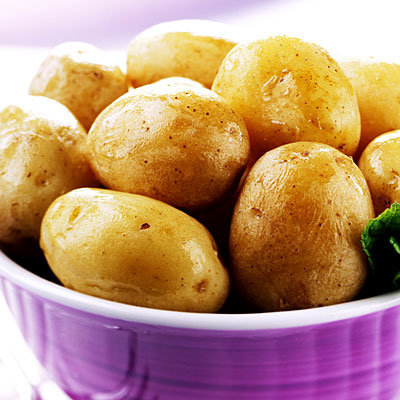
Another fat fallacy
Contrary to popular belief, healthy fats won't knock out hunger. "The most satiating foods are those rich in protein and fiber," Koch notes. "In fact, one study concluded that the most satisfying thing to eat is a boiled potato, thanks to its combination of water, starch and fiber." In any sound weight-loss or weight-maintenance plan, 30 percent of your daily calories should come from fat—and any more than that should be measured by the teaspoon, not the tablespoon. As Koch puts it: "People think that the way to make something healthy is to use lots of olive oil. Chefs are notorious for this—they'll dump the whole bottle in and go, 'Whee!' Sure, certain fats are better for our health than others, but the best thing you can do for your body is to be at a healthy weight, period."
-
Weight loss Programs: Will They Actually Work?
The variety of weight loss programs offered can overwhelm just abou
-
Poor digestion? Lemon water can help!
When you wake up every morning you probably opt for a cup of
-
Burn More Calories Than Running!
Bored with running on the treadmill? Have you worn out
-
Your Ideal Weight
The Quick Weight Loss Diet will help you attain your ideal weight quic
-
Fast Track Your Way Back To Health With The Power Of Fresh Juice
The food we eat plays a major key as to how our body performs and h
-
The Best Summer Foods To Eat If You Want To Lose Weight
FINALLY! Summer has arri
- DON'T MISS
- Weight Loss Recipes Makes it Easy
- Probably The Best Weight Loss Program Ever
- Now You Can Dance Your Way To Weight Loss
- Looking To Shed Some Pounds? Try These Tips!
- Success In Weight Loss Begins in the Mind.
- Save Your Self-Esteem! Follow These Rules For Weighing Yourself
- The Most Effective Way To Slim Down
- Reducing Belly Fat - How To Reduce Body Fat Just Like I Did
- Healing Food Addiction
- Weight Loss Goals and Why They Don't Work


